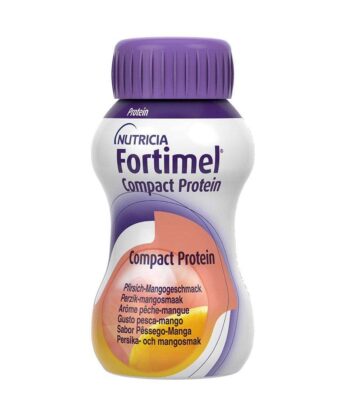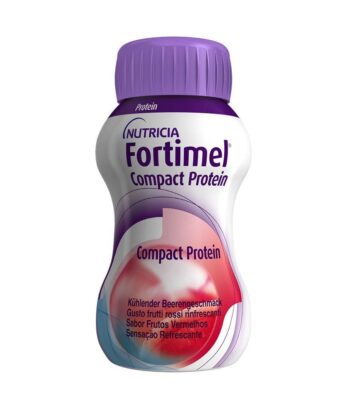Nowadays, healthy eating has become a fundamental pillar for promoting well-being and preventing various diseases. However, although a balanced diet is crucial, it may often not be enough to meet all the body's nutritional needs. This is where functional foods and supplementation come in. Functional foods are those that, in addition to providing essential nutrients, contain bioactive components with additional health benefits, such as improving the immune system and promoting cardiovascular health. This article explores how to integrate functional foods into the daily diet and how to introduce supplementation effectively and safely, maximizing the benefits for health and quality of life.
Functional foods: what they are and how they can improve quality of life
Functional foods are foods or ingredients that, in addition to their basic nutritional functions, offer additional health benefits. These benefits can include preventing disease, improving specific health conditions or promoting general well-being. The definition of functional foods can vary, but in general they contain biologically active components that have positive effects on health.

Examples of Functional Foods and their Benefits
● Probiotics: Found in yogurt and other fermented foods, probiotics are beneficial bacteria that help maintain the balance of the intestinal microbiota, improving digestion and nutrient absorption, as well as strengthening the immune system.
● Prebiotics: Non-digestible substances that stimulate the growth of beneficial bacteria in the gut. Examples include inulin and oligofructose, found in foods such as garlic, onions and bananas.
● Omega-3 fatty acids: Found in oily fish such as salmon and sardines, as well as flaxseeds and chia seeds, omega-3s are known for their anti-inflammatory effects and for improving cardiovascular health.
● Soluble and Insoluble Fibers: Present in fruits, vegetables, whole grains and legumes, fiber helps regulate intestinal transit, control blood glucose and cholesterol levels and maintain a healthy weight.
● Antioxidants: Compounds such as vitamins C and E, polyphenols and carotenoids, found in colorful fruits and vegetables, help fight free radicals in the body, protecting cells from damage and premature aging.
● Phytosterols: Present in vegetable oils, nuts and seeds, phytosterols can help reduce LDL cholesterol levels in the blood.
● Essential Amino Acids: Some foods are rich in essential amino acids, which are fundamental for protein synthesis and other bodily functions. Examples include lean meats, eggs and legumes. How do Functional Foods Improve Quality of Life?
● Prevention of Chronic Diseases: Regular consumption of functional foods can reduce the risk of developing chronic diseases such as heart disease, type 2 diabetes and some types of cancer.
● Improving Digestive Health: Foods rich in fiber, probiotics and prebiotics help maintain a healthy digestive system, preventing problems such as constipation, irritable bowel syndrome and other gastrointestinal disorders.
● Strengthening the immune system: Nutrients and bioactive compounds present in functional foods can strengthen the immune system, making the body more resistant to infection and disease.
● Body weight control: Foods rich in fiber and protein can promote satiety and thus help control appetite and maintain a healthy weight.
● Improving Mental Health: Some functional foods, such as those rich in omega-3 and antioxidants, have been associated with improved mental health, including reduced symptoms of depression and anxiety.
● Increased energy and vitality: Consuming a diet rich in nutrients and bioactive compounds can increase energy and vitality levels and improve general well-being.

How to include functional foods in your daily diet
Including functional foods in your daily diet can be an effective way of improving your health and general well-being. Here are some practical tips for incorporating these foods into your daily routine:
Breakfast
Yogurt with probiotics: Start the day with natural or Greek yogurt, which is rich in probiotics, adding fresh fruit such as strawberries or blueberries for a boost of antioxidants. Oats: Oats are rich in soluble fiber and can be combined with flaxseeds or chia seeds, which are sources of omega-3.
Healthy snacks
Nuts and seeds: Almonds, walnuts and pumpkin seeds are excellent snacks rich in phytosterols and healthy fatty acids.
Fresh fruit:
Fruits such as apples, bananas and oranges are rich in fiber, vitamins and antioxidants.
Lunch Colorful salads:
Prepare salads with a variety of colorful vegetables, such as spinach, carrots, peppers and tomatoes, which are rich in vitamins and antioxidants. Add chickpeas or beans for an extra dose of fiber and protein.
Fatty fish:
Include oily fish, such as salmon or sardines, at least twice a week to get a good amount of omega-3. Dinner Legumes: Use legumes such as lentils, beans and chickpeas in soups, stews or as a side dish. They are rich in fiber, protein and minerals.
Cruciferous vegetables:
Include broccoli, cauliflower and Brussels sprouts, which are rich in antioxidants and compounds that can help prevent cancer.
Drinks Green tea:
Green tea is rich in polyphenols, which are powerful antioxidants. Drink one or two cups a day.
Natural juices:
Prepare juices with fresh fruit and vegetables for a boost of vitamins and minerals. Cooking with Healthy Oils Extra virgin olive oil:
Use extra virgin olive oil in your salads and cooking. It is rich in monounsaturated fatty acids and antioxidants.
Healthy desserts Dark chocolate: Choose chocolate with a high cocoa content (70% or more), which is rich in flavonoids and antioxidants.
Fruit with yogurt: Combine fresh fruit with natural yogurt for a dessert rich in probiotics and vitamins.
Additional Tips Variety and Moderation: Make sure you vary the types of functional foods you consume to get a wide range of nutrients and benefits.
Label reading: When buying processed foods, check the labels to choose options that include functional ingredients and avoid unnecessary additives and sugars.
Meal planning: Plan your meals weekly to ensure you are including a good variety of functional foods.
Examples of Daily Meals with Functional Foods
Breakfast Natural yogurt with chia seeds, blueberries and a drizzle of honey. Oatmeal with banana, cinnamon and walnuts. Lunch Spinach salad with grilled salmon, avocado, cherry tomatoes and an olive oil and lemon vinaigrette. Lentil soup with mixed vegetables and a slice of wholemeal bread. Dinner Baked sardine fillet with sweet potato and steamed broccoli. Chickpea stew with spinach and tomatoes. Functional foods and their positive effects on the immune system Functional foods can have a significant impact on strengthening the immune system. Here are some examples of functional foods and their positive effects on the immune system:
Yogurt and Other Probiotic Fermented Foods: Yogurt and other fermented foods, such as kefir, kimchi and sauerkraut, are rich in probiotics.
These beneficial microorganisms help to maintain a healthy balance of intestinal microbiota, which is essential for a strong immune system.
Positive effect: Improved immune response and reduced intestinal inflammation, which can help prevent infections. Garlic Allicin: Garlic contains sulphur compounds, such as allicin, which have antimicrobial and immunomodulatory properties.
Positive effect: Stimulates the activity of immune cells, such as macrophages, and increases the body's ability to fight infections.
Gingerol: Ginger is rich in gingerol, which has anti-inflammatory and antioxidant properties.
Positive effect: Reduces inflammation and strengthens the body's defenses against pathogens.
Citrus fruits Vitamin C: Fruits such as oranges, lemons, grapefruit and tangerines are rich in vitamin C, a powerful antioxidant. Positive effect: Increases the production of white blood cells, which are essential in the fight against infections, and strengthens immune barriers.
Antioxidant Red Fruits: Strawberries, blueberries, raspberries and blackberries are rich in antioxidants such as anthocyanins.
Positive effect: Protection of immune cells against oxidative damage and improvement of the immune response. Turmeric Curcumin: Turmeric contains curcumin, a compound with potent anti-inflammatory and antioxidant properties.
Positive effect: Modulation of the immune response and reduction of chronic inflammation. Green Tea Catechins: Green tea is rich in catechins, which are powerful antioxidants.
Positive effect: Stimulation of the function of T-cells, which are crucial for the adaptive immune response. Spinach and Other Green Leafy Vegetables
Vitamins and Minerals: Spinach, kale and chard are rich in vitamins A, C and E, as well as folate and iron.
Positive effect: Increased production of antibodies and immune cells, and support for the growth and repair of immune tissues.
Almonds Vitamin E:
Almonds are an excellent source of vitamin E, a fat-soluble antioxidant.
Positive effect: Protection of cell membranes against damage and support for immune cell function.
Beta-glucan mushrooms: Mushrooms such as shiitake, reishi and maitake contain beta-glucans, which are known for their immunomodulatory properties.
Positive effect: Stimulation of the activity of natural killer cells and macrophages, improving the innate immune response.
Oily Fish Omega-3 Fatty Acids: Oily fish such as salmon, sardines and mackerel are rich in omega-3 fatty acids.
Positive effect: Reduces inflammation and strengthens cell membranes, improving immune function.
Sweet potato beta-carotene: Sweet potatoes are rich in beta-carotene, an antioxidant that the body converts into vitamin A.
Positive effect: Maintenance of the integrity of mucous membranes, which are the first line of defense against pathogens. Functional foods and their benefits for cardiovascular health If you are researching the benefits of functional foods, due to their important role in promoting cardiovascular health, you should know that they are important due to their bioactive components, which help to reduce risk factors such as hypertension, high cholesterol and inflammation.
Here are some examples of functional foods and their specific benefits for cardiovascular health:
Oily Fish Bioactive Components: Omega-3 fatty acids (EPA and DHA)
Benefits: Omega-3 fatty acids help reduce inflammation, lower triglyceride levels in the blood, reduce blood pressure and prevent the formation of blood clots. Extra Virgin Olive Oil
Bioactive components: Monounsaturated fatty acids and polyphenols Benefits: Reduces LDL cholesterol ("bad" cholesterol) and increases HDL cholesterol ("good" cholesterol), as well as having anti-inflammatory and antioxidant properties.
Red fruits Bioactive components: Anthocyanins and other polyphenols Benefits: Improves endothelial function (health of arterial walls), reduces blood pressure and oxidative stress, and reduces inflammation. Oats Bioactive components: Betaglucan (soluble fiber)
Benefits: Beta glucan helps reduce total and LDL cholesterol levels, promoting healthy arteries and reducing the risk of cardiovascular disease. Walnuts and Almonds Bioactive components: Unsaturated fatty acids, fiber, vitamin E and phytosterols Benefits: Improve lipid profile (reduce LDL and increase HDL), have anti-inflammatory and antioxidant properties, and help control blood pressure.
Green Tea Bioactive Components: Catechins Benefits: Reduces LDL cholesterol levels, improves arterial function and has antioxidant and anti-inflammatory properties.
Dark Chocolate Bioactive Components: Flavonoids (especially epicatechin) Benefits: Improves endothelial function, reduces blood pressure and has antioxidant properties that protect heart cells.
Legumes Bioactive components: Fiber, vegetable proteins, folate, magnesium and potassium Benefits: Reduces LDL cholesterol levels, improves artery health and helps control blood pressure. Avocado
Bioactive components: monounsaturated fatty acids, fiber, potassium and antioxidants
Benefits: Reduces LDL and total cholesterol, increases HDL, and has beneficial effects on blood pressure and vascular health.
Garlic Bioactive components: Allicin and other sulphur compounds Benefits: Reduces blood pressure, improves lipid profile and has antioxidant and anti-inflammatory properties. Tomato Bioactive components: Lycopene
Benefits: Reduces LDL cholesterol levels, protects heart cells against oxidative damage and improves artery health. Flaxseeds
Bioactive components: Alpha-linolenic acid (ALA, a type of omega-3), fiber and lignans Benefits: Reduces cholesterol levels, improves arterial health and has anti-inflammatory properties.
Green Leafy Vegetables Bioactive Components: Nitrates, fiber, antioxidants and vitamins (such as vitamin K)
Benefits: They improve artery health, reduce blood pressure and have anti-inflammatory and antioxidant properties.
How to introduce supplementation based on a healthy diet? Introducing supplementation effectively, based on a healthy diet, requires a balanced and conscious approach.
Here are some guidelines for doing so correctly and consciously: Assessment of Nutritional Needs Consultation with a Health Professional: Before starting any supplementation, it is essential to consult a doctor or nutritionist to assess your specific needs, based on blood tests and evaluation of your current diet. Identification of
Deficiencies: Identify possible nutritional deficiencies or areas that could benefit from additional support (e.g. vitamin D, iron, omega-3).
Choosing Quality Supplements Reputable Products:
Choose supplements from well-known and reliable brands that follow good manufacturing practices.
Pure Ingredients: Prefer supplements with minimal ingredients and no unnecessary additives.
Certification and testing: Check that the products have quality certifications and have been tested by third parties. Integrate Supplements into Daily Routine Regular Routine: Take supplements at consistent times every day to create a habit.
With meals: Many supplements are better absorbed when taken with food.
For example, fat-soluble vitamins such as A, D, E and K should be taken with a meal containing fats. Common Supplements and How to Introduce Them Multivitamin: Can be useful for filling general nutritional gaps. Take one capsule a day with a main meal.
Vitamin D: If you live in regions with little sun exposure or are deficient, taking vitamin D3 with the first meal of the day can be effective.
Omega-3: To improve cardiovascular health, take fish oil or algae capsules with a high-fat meal.
Probiotics: For digestive health, take probiotics first thing in the morning or in the evening, preferably with a meal or snack. Magnesium: Useful for relaxation and muscle health, it can be taken at night to help with sleep.
Monitoring and adjustments Regular monitoring: Follow up regularly with your doctor to monitor nutritional levels and adjust supplementation as necessary.
Dietary adjustments: Continue to focus on a balanced, nutrient-rich diet, adjusting supplementation based on changes in diet and health needs.
Specific Supplementation Based on Athletes' Personal Needs:
They may need additional proteins, BCAAs or electrolytes to support performance and recovery. Pregnancy: Pregnant women may need extra folic acid, iron and calcium. Elderly: Calcium, vitamin D and B12 supplements may be important due to reduced absorption of nutrients.
Beware of excessive supplementation Balance: Avoid excessive supplementation, as high levels of certain vitamins and minerals can be harmful.
Follow Recommendations: Respect the dosages recommended by your health professional and the product labels. By following these guidelines, you can effectively integrate supplementation into a healthy diet, maximizing the benefits for your health without compromising your body's nutritional balance.
At Saúde e Sua Casa, we have a supplementation category that has been carefully selected to guarantee the maximum quality and effectiveness of the products on offer. Our team of professionals is always available to advise you on the best supplementation option for your specific case and individual needs, helping you to achieve optimum health through a personalized and informed approach. Rely on our experience and commitment to well-being to make the best choices for your health.









